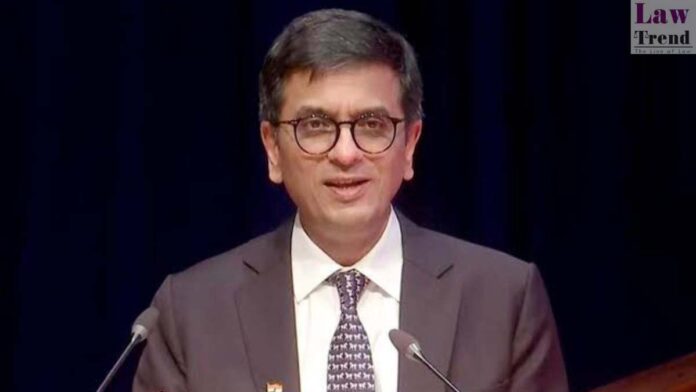In a significant address at the 20th DP Kohli Memorial Lecture, Chief Justice of India DY Chandrachud emphasized the pivotal role of technology in transforming the criminal justice system.
The lecture, named after the founding director of the Central Bureau of Investigation (CBI), DP Kohli, served as a platform for the Chief Justice to reflect on Kohli’s legacy and the evolving demands on the CBI.
Highlighting DP Kohli’s foundational work in establishing the CBI in 1963, Chief Justice Chandrachud commended Kohli’s vision for a premier investigative agency free from corruption.

The Chief Justice remarked on the expanded role of the CBI in contemporary times, noting the broadened scope of investigations and the resulting opportunities for the legal profession.
In the era of digital transformation, Chief Justice Chandrachud pointed out the changing nature of crimes and investigations, stressing that crime has transcended physical spaces to the digital realm. He advocated for India to adapt its investigative frameworks to tackle new-age criminal networks effectively, suggesting the formation of multidisciplinary teams including data analysts.
The Chief Justice acknowledged reforms within the CBI under the Department of Personnel and Training (DoPT), including the establishment of NETRA, and discussed the legal provisions that empower courts to summon digital evidence.
He called attention to the need for balancing investigative needs with privacy rights, highlighting ongoing petitions in the Supreme Court seeking guidelines for the search and seizure of devices.
Chief Justice Chandrachud further touched upon the procedural innovations made possible by technology, such as electronic summoning and virtual testimony recording, which streamline judicial processes.
He underscored the importance of collaboration among all stakeholders in the criminal justice system and stressed the necessity for training to ensure inclusivity and prevent the digital divide.
Addressing the challenges faced by CBI courts, the Chief Justice humorously noted the irony of efficient judges being assigned to these courts, only to have their disposal rates affected by the slow pace of proceedings.
He advocated for the establishment of new, technologically advanced courts to expedite CBI cases, emphasizing the impact of delays on justice delivery.
Concluding his lecture, Chief Justice Chandrachud envisioned a future where technology, including artificial intelligence, plays a central role in revolutionizing criminal investigations while cautioning against potential biases and the importance of ethical guidelines.
His speech underscored the balance between harnessing technological advancements and safeguarding individual rights, aiming for a citizen-centric justice system.







